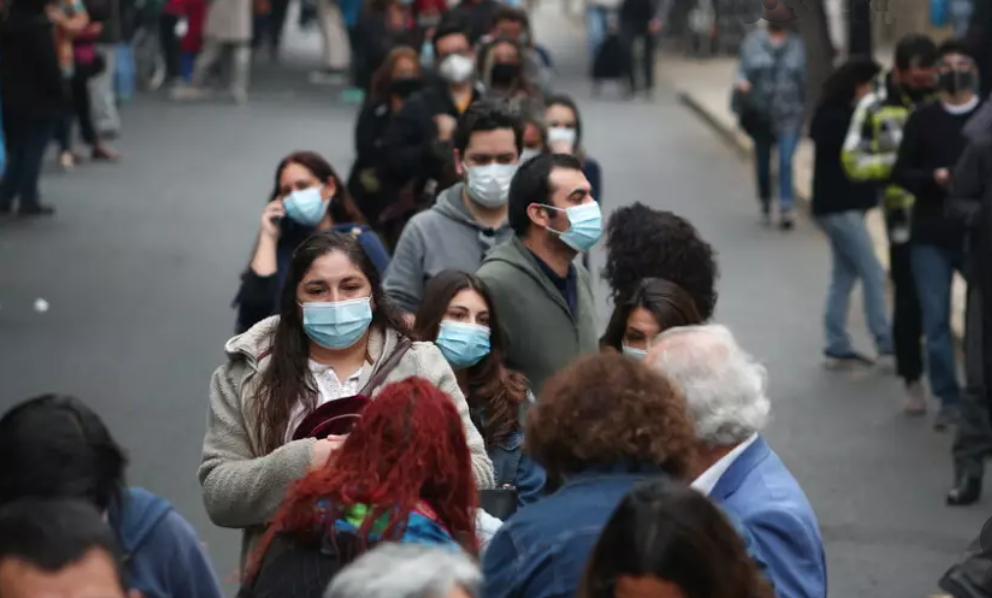Co-author Luis Mauricio Phélan
After an unprecedented and complex institutional process, last Sunday, September 4, the constitutional referendum was held in Chile, where 6 out of 10 voters rejected the new Constitution. Beyond the resounding defeat of the Constituent Convention’s proposal, the plebiscite left other relevant aspects such as the corroboration of an informed and politically moderate electorate.
An informed vote
The accusation that the Chilean voter has been manipulated by the media is unfounded. Rarely before has there been so much access to information, preparation, and public debate available to voters. The official text of the proposal was downloaded, printed, and disseminated massively and in the days leading up to the vote, it was common to see people reading the proposal on public transport. Chileans organized groups on WhatsApp, Telegram, Reddit, and other social networks among family, friends, colleagues, and neighbors to discuss the proposal.
In this sense, the accusations that the population was manipulated are unsubstantiated. It cannot be lost sight of the fact that the approval voters are almost the same who voted for Boric in the second round in 2021 and almost one million voters less than the approval in the plebiscite of entry in 2020. In the rejection option, the difference between the exit and entrance plebiscite is just over six million voters.
The compulsory nature of the vote could partly explain the increase in turnout. However, it would be strange to think that these votes were not conscious. If we consider the preparation time, the virtual and field campaigns, in addition to the technical and budgetary effort of the government to disseminate the contents of the constitutional proposal, we could say that these more than six million people had access to information much greater than that received by voters in any previous election.
The mandate for constitutional reform is still in force
As we have seen these days, the result ended a stage, but the constitutional process is not over. Today, the Legislative Branch is outlining the steps to follow. This re-launching of the constitutional moment is based on the premise that in the 2020 referendum the citizens were categorical in confirming that they do not want the 1980 Constitution, created during the military dictatorship. However, it is still unknown what will be the political fate of this new process to reach a consensus and draft a new proposal.
The demand for structural changes in favor of social justice and its expression in a new Magna Carta is still valid. Improving the quality of life of the most vulnerable sectors of society is a demand coming from all sectors of the citizenry. Consequently, with this result, voters gave political parties a new opportunity to carry out the changes that the poorest groups of the population need.
In this context, the more moderate positions of the partisan political spectrum have the ethical duty to promote consensus as a way of deciding and approving new agreements without any complexes. It is good to clarify that consensus requires the understanding of opposing political approaches and discourses, no matter how unheard of or irrelevant they may seem at first. Likewise, knowing how to weigh and give in many times to the strength of other people’s ideas without giving the feeling of failure.
Moderation reappears as a necessary attribute for democracy.
From the moment the Convention took office until the approval by a 2/3 majority of the articles, the leftist sectors and independent representatives related to the Communist Party, lived a delirium unprecedented in the recent history of Chile, that of feeling themselves as an absolutely unquestionable and unimputable majority. The 80% of support in the plebiscite and a wide majority of their candidacies to form the Convention (and the low vote of the right-wing) gave them the sensation of having carte blanche to do and undo in the name of the people, without considering what many warned from diverse spaces of reflection, that electoral majorities are absolutely circumstantial in democracies.
It is only fair to recognize that certain conventional members of the political right only went to torpedo the work that, clearly, was crucial for the construction of a new future. However, there were also moderate positions, on the right and also on the left, which were isolated from the agreements simply because they put forward positions considered to be liberal. These practices have been defended by the Convention members themselves, who argued that it was time to segregate those who had historically done so from the institutions. This revanchist practice is far from what is expected from a democratic and supposedly democratizing body.
For those who want to understand what is happening in Chile today, it is interesting to observe how Chilean society has remained distant from extremism, both from the left and the right. As sociologist Fernando Mires would say, we are in front of a generation that knew how to contain, electorally, the extreme right of José Antonio Kast and also the maximalism of the left, represented in this constitutional proposal. Now, it is essential to advance in those changes of a structural nature, to be proactive, and to listen decisively to what a good part of the political spectrum – consisting of a wide and diverse citizenry – needs and which for decades has had to be addressed.
In short, this constitutional democratic process begins a new phase, still uncertain, but that could be used to build a better way of doing politics and a proposal for a Constitution that truly identifies with the majority of Chileans. A text where citizens, regardless of their geographical origin, cultural, ethnic, or sexual identity, can meet so that Chile can achieve the pending task of the last three decades: social cohesion.
Translated from Spanish by Janaína Ruviaro da Silva












